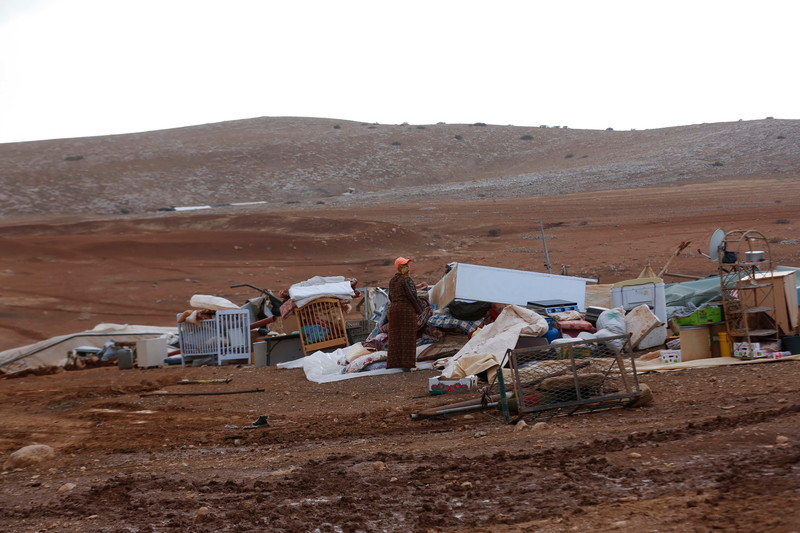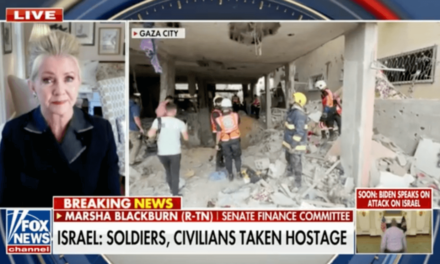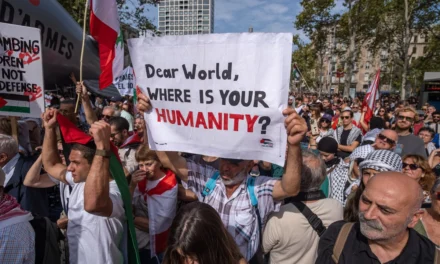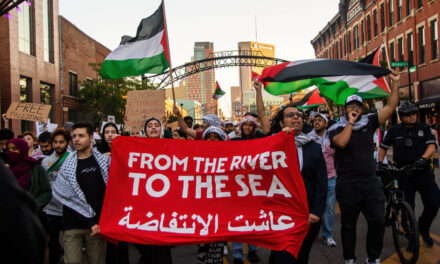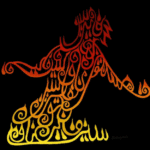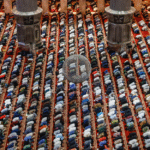A Palestinian woman inspects the ruins of her community after it was demolished by Israeli occupation forces in the occupied West Bank area of Khirbet Humsa on 3 November.
APA images
ORIGINALLY PUBLISHED BY:
While all eyes were on the United States elections this week, Israel carried out the largest demolition in occupied territory in years.
Israeli forces arrived in the occupied West Bank community of Khirbet Humsa on Tuesday and demolished 76 structures.
This was “more than in any other single demolition in the past decade,” said the interim UN humanitarian coordinator Yvonne Helle.
Destroyed structures include homes, kitchens, bathrooms, animal shelters and solar panels.
More than 70 Palestinians were made homeless, including 41 children, totaling 11 families. Three quarters of the community’s population “lost their shelters,” Helle added.
It was “the largest forced displacement incident in over four years.”
Israel destroyed 30 tons of livestock fodder and seized the vehicles and tractors of three residents as well, according to Israeli human rights group B’Tselem.
The group recorded footage of the destroyed community following the demolition:
Describing the scene of the destruction, the Safa Palestinian Press Agency said “it was as if a hurricane had struck it, leaving nothing intact.”
The Khirbet Humsa community has faced Israeli harassment for years.
Helle reminded that “extensive destruction” of homes and the “forcible transfer” of Palestinians demonstrate “grave breaches” of international humanitarian law.
Minnesota Congresswoman Ilhan Omar, who was reelected this week, called the demolition “a grave crime – in direct violation of international law” on Friday.
Omar warned that it would have been illegal for American-made equipment to be used in the demolition.
“The United States of America should not be bankrolling ethnic cleansing,” she added.
“Firing zone”
Khirbet Humsa lies in a so-called “firing zone” in the Jordan Valley region of the occupied West Bank, east of the town of Tubas.
Israel uses such designations to forcibly displace indigenous Palestinian communities or prevent them from accessing their land.
Palestinians living in such zones, including in Khirbet Humsa, are ordered to vacate their homes when Israel conducts military combat exercises.
Israel has declared more than half of the West Bank’s Jordan Valley a closed military zone.
Palestinians see the ultimate aim of these zones as an attempt to annex these areas to Israel.
Israel’s demolition of Palestinian structures in the occupied West Bank, including East Jerusalem, has skyrocketed this year, despite the pandemic.
Israel made more Palestinians homeless in the first 10 months of this year than any other year on record since 2016, B’Tselem said.
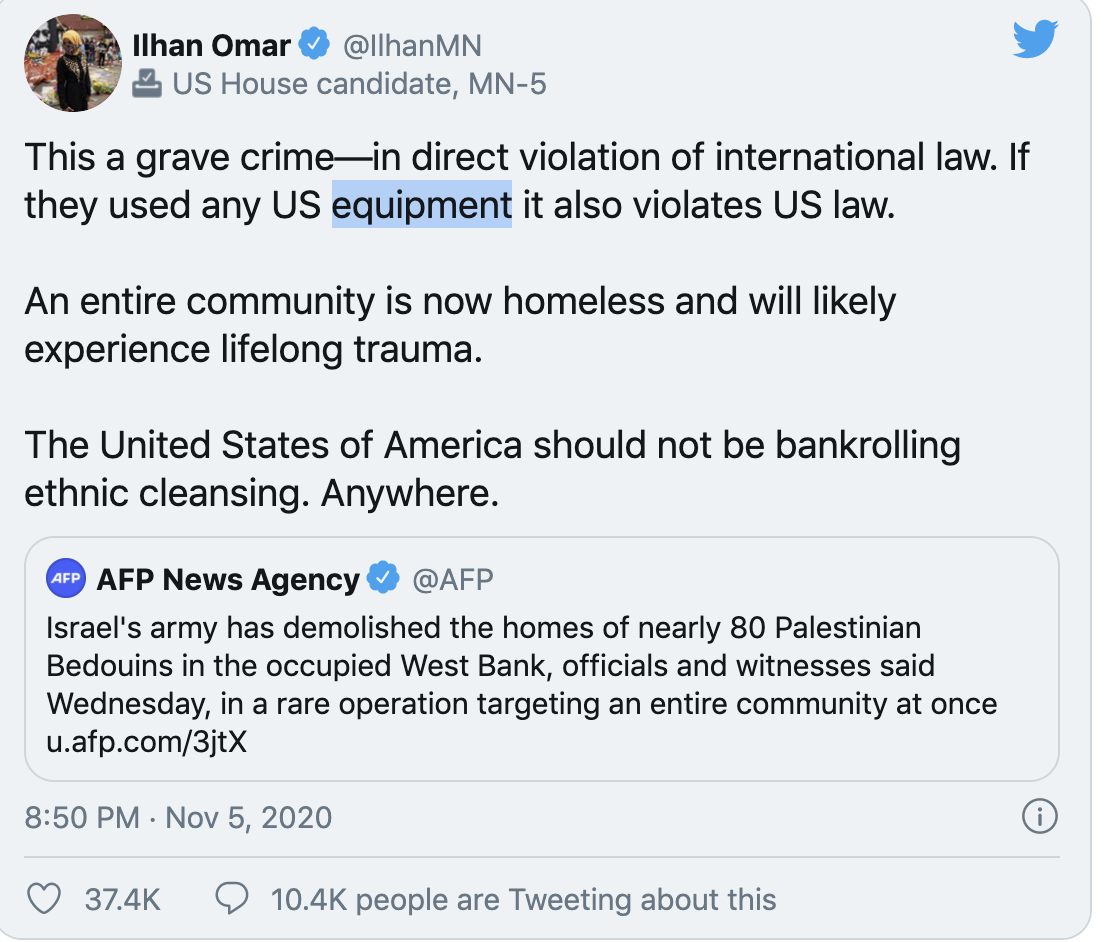
EU offers regret, not condemnation
The European Union said the demolition was part of a “regrettable trend” since the beginning of the year.
This includes Israeli plans to demolish a Palestinian elementary school funded by the European Union and the United Kingdom, according to EU foreign affairs spokesperson Peter Stano.
Such demolitions, he added, are “an impediment towards the two-state solution.”
The EU statement – tepid as it is – failed to directly condemn the demolition.
That’s not surprising.
Even when Israel destroys tens of million of dollars of projects for Palestinians paid for by European taxpayers, the EU still does nothing to hold it accountable.
On the contrary, such actions have little effect on the EU’s relationship with Israel.
This all forms part of what appears a vicious cycle: the EU funds Palestinian projects and structures in the occupied West Bank, Israel threatens to demolish such structures, the EU occasionally expresses “concern” over Israel’s plans, Israeli forces carry out intended demolitions, the EU rewards Israel with closer cooperation and investment.
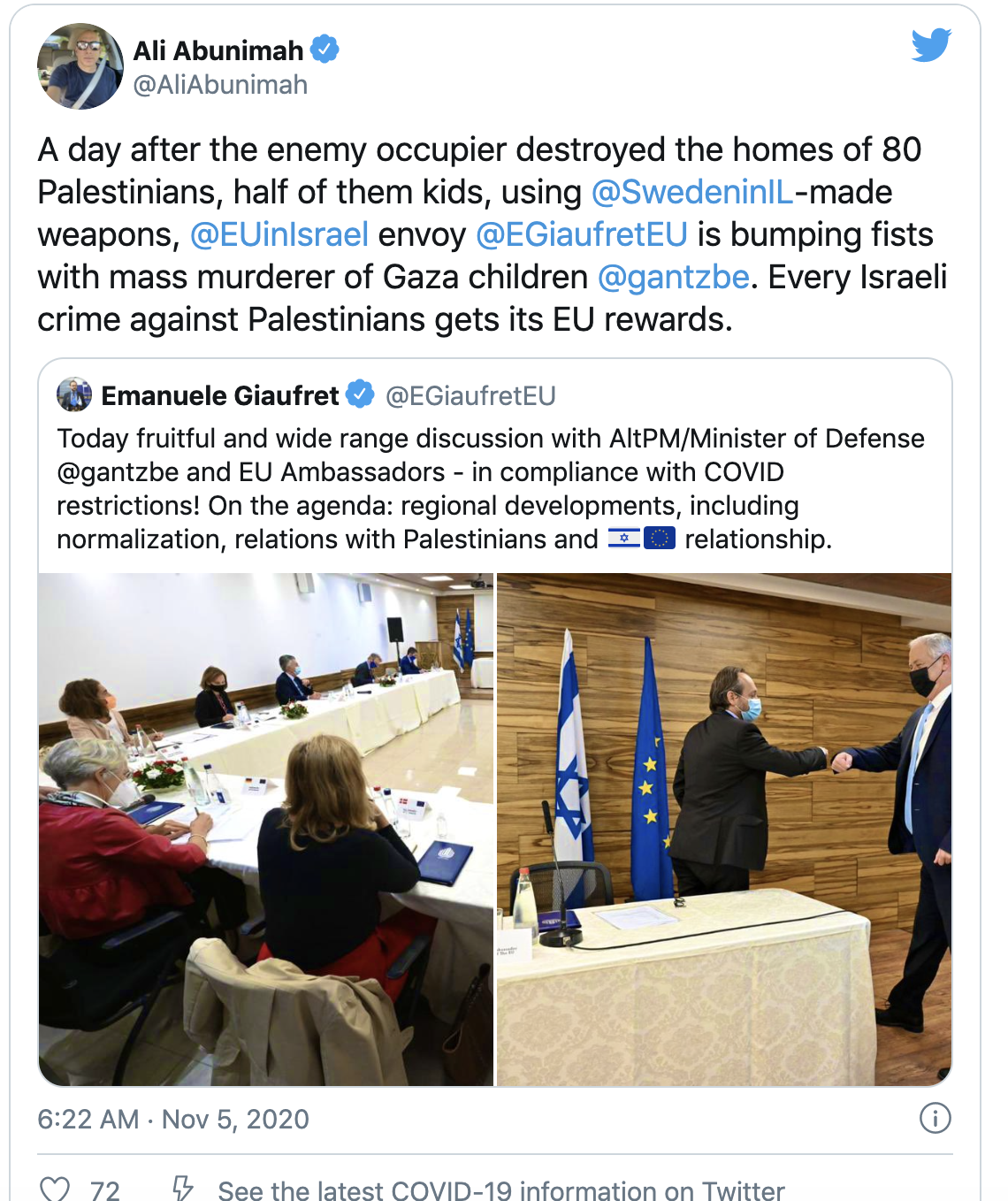
If Israel’s demolitions are “an impediment,” the EU’s complacency is just as much an obstacle – not just to the already moribund two-state solution – but also to any form of Palestinian liberation from Israel’s violent colonization of their land.
